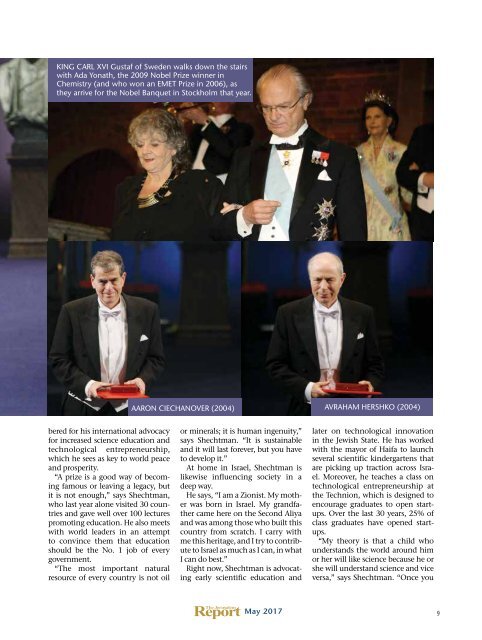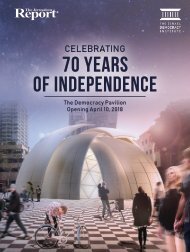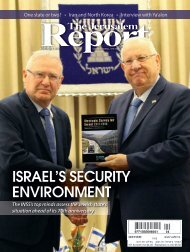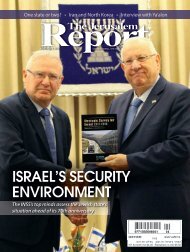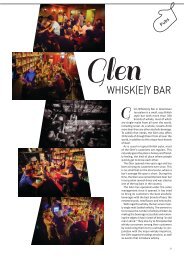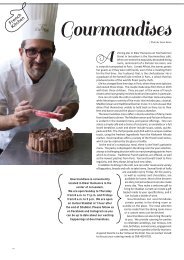You also want an ePaper? Increase the reach of your titles
YUMPU automatically turns print PDFs into web optimized ePapers that Google loves.
KING CARL XVI Gustaf of Sweden walks down the stairs<br />
with Ada Yonath, the 2009 Nobel Prize winner in<br />
Chemistry (and who won an <strong>EMET</strong> Prize in 2006), as<br />
they arrive for the Nobel Banquet in Stockholm that year.<br />
AARON CIECHANOVER (2004)<br />
AVRAHAM HERSHKO (2004)<br />
bered for his international advocacy<br />
for increased science education and<br />
technological entrepreneurship,<br />
which he sees as key to world peace<br />
and prosperity.<br />
“A prize is a good way of becoming<br />
famous or leaving a legacy, but<br />
it is not enough,” says Shechtman,<br />
who last year alone visited 30 countries<br />
and gave well over 100 lectures<br />
promoting education. He also meets<br />
with world leaders in an attempt<br />
to convince them that education<br />
should be the No. 1 job of every<br />
government.<br />
“The most important natural<br />
resource of every country is not oil<br />
or minerals; it is human ingenuity,”<br />
says Shechtman. “It is sustainable<br />
and it will last forever, but you have<br />
to develop it.”<br />
At home in Israel, Shechtman is<br />
likewise influencing society in a<br />
deep way.<br />
He says, “I am a Zionist. My mother<br />
was born in Israel. My grandfather<br />
came here on the Second Aliya<br />
and was among those who built this<br />
country from scratch. I carry with<br />
me this heritage, and I try to contribute<br />
to Israel as much as I can, in what<br />
I can do best.”<br />
Right now, Shechtman is advocating<br />
early scientific education and<br />
later on technological innovation<br />
in the Jewish State. He has worked<br />
with the mayor of Haifa to launch<br />
several scientific kindergartens that<br />
are picking up traction across Israel.<br />
Moreover, he teaches a class on<br />
technological entrepreneurship at<br />
the Technion, which is designed to<br />
encourage graduates to open startups.<br />
Over the last 30 years, 25% of<br />
class graduates have opened startups.<br />
“My theory is that a child who<br />
understands the world around him<br />
or her will like science because he or<br />
she will understand science and vice<br />
versa,” says Shechtman. “Once you<br />
The Jerusalem<br />
Report<br />
May <strong>2017</strong><br />
9


